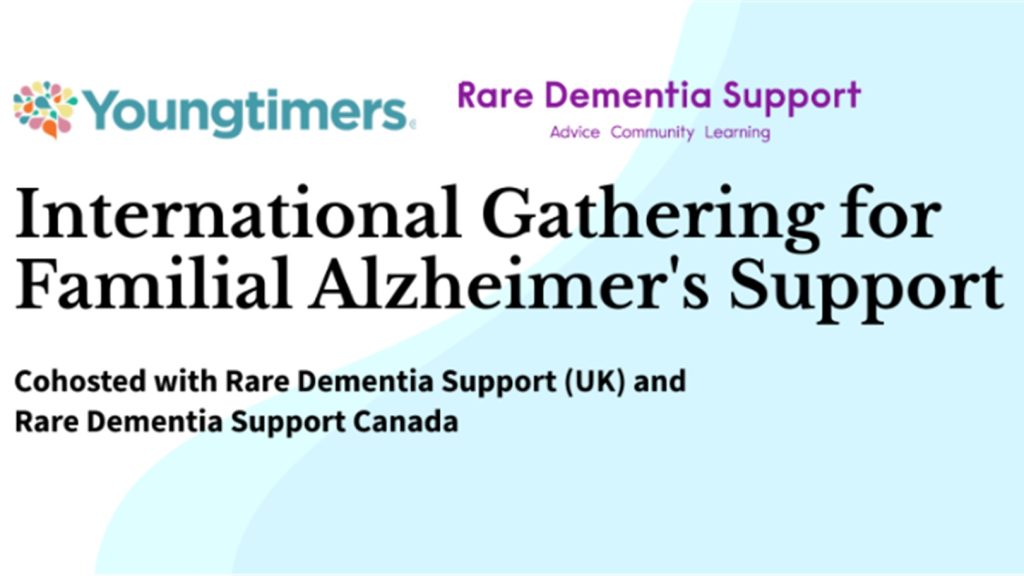Support Group for Familial Alzheimer’s Disease

In partnership with Rare Dementia Support (UK) and Youngtimers (USA), Rare Dementia Support Canada hosted a joint support group to bring together individuals from the US, Canada, and the UK (and beyond) impacted by autosomal dominantly inherited familial Alzheimer’s disease (sometimes referred to as ADAD, DIAD or FAD). The goal of this new collaboration is to support individuals who are symptomatic, asymptomatic (confirmed positive genetic status), and at-risk (confirmed mutation in the family but genetic status unknown), and/or supporting or caregiving for someone with familial Alzheimer’s disease.
We are pleased to announce that the 90 minute group support session ran on Sunday, November 19th and included an international group of participants.
If you may be an RDS Canada member who is impacted by familial Alzheimer’s disease and you are looking for support please contact us to connect with the support team.
For more information email rdscanada@nipissingu.ca.
- Sip & Sonder: Connections with Self, Family, Community and the Natural EnvironmentThank you to all who gathered at the North Bay museum on November 1st and 2nd to explore our installation of stories of connection and living with dementia. The event included welcome and refreshments, open gallery & Imagine and Create Your Own Maps.
- Support Group for Familial Alzheimer’s DiseaseIn partnership with Rare Dementia Support (UK) and Youngtimers (USA), Rare Dementia Support Canada hosted a joint support group to bring together individuals from the US, Canada, and the UK (and beyond) impacted by autosomal dominantly inherited familial Alzheimer's disease (sometimes referred to as ADAD, DIAD or FAD). We are pleased to announce that the 90 minute group support session ran on Sunday, November 19th and included an international group of participants. For more information please email rdscanada@nipissingu.ca.
- Talking Lines creative research update Talking Lines is a research project which combines both visual and verbal modes of communication, taking the concept of the drawn line as a starting point to promote communication and narrative construction. Talking Lines invited 27 people living with or caring for someone with a rare dementia to draw and talk about their experiences; reflecting on deeply challenging situations such as maintaining identity in the face of a diagnosis, the realities of care, and wider social and cultural narratives about dementia. There will be a presentation of this research at the Drawing Room Library, London (UK), which will focus on the drawings and words of 4 participants who took part in the research, including Canadian participation.
